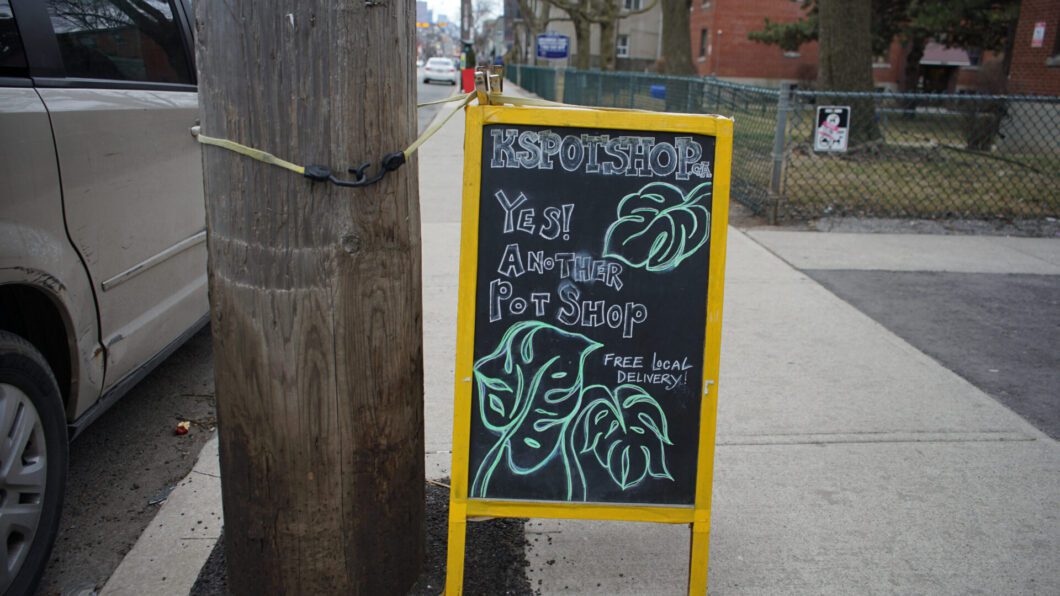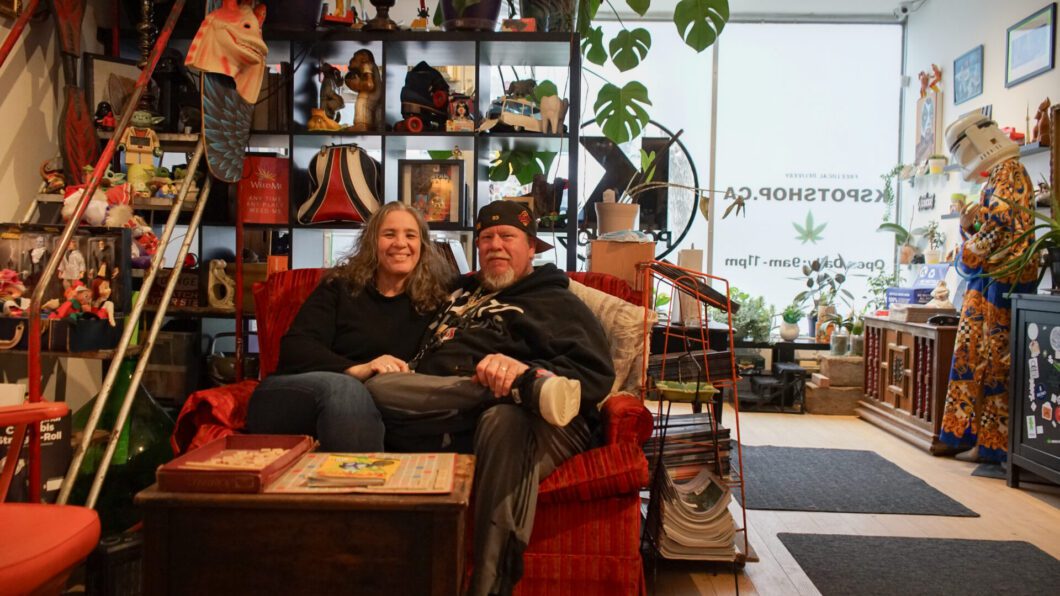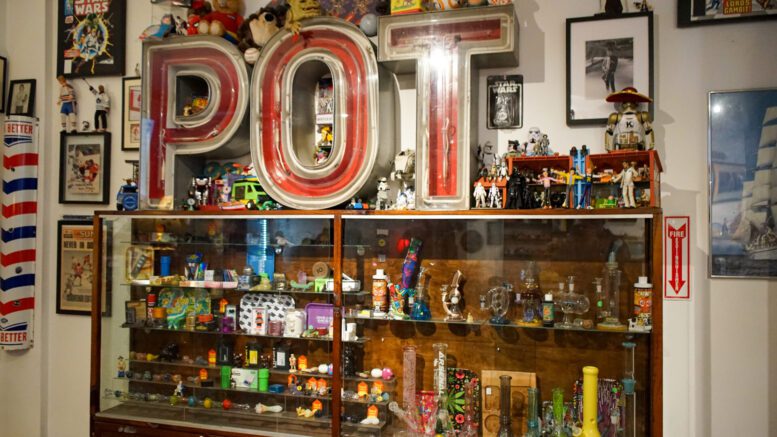Ontario’s newest change to the cannabis industry has smaller retailers concerned, one shop owner says.
On Jan. 1, the Ontario government updated its rule regarding single-store ownership, increasing the cap from 75 to 150 outlets per chain.
Elisa Keay, the owner of K’s Pot Shop, an independent store located on Queen Street East in Leslieville, is a member of the Retail Cannabis Council of Ontario, a nonprofit industry advocate group. She said the changes would hinder independent retailers.
“We’re not only destroying the opportunity for the industry to grow but also the opportunity for small businesses,” she said.

According to the Ministry of the Attorney General, there are currently 1,700 cannabis stores operating in Ontario, with declining numbers of new licenses being issued and stores closing down.
By contrast, more communities are opting to allow cannabis stores in their municipality; Mississauga changed its by-laws last year to allow retail cannabis stores across the city.
Keay thinks the Alcohol and Gaming Commission of Ontario (AGCO) should have done more to consult industry retailers.
“Nobody asked independent retailers for any insight. When this change happened, I learned about it when the rest of the world learned about it and to us. I’ll speak on behalf of the Retail Cannabis Council of Ontario, as well as myself as an independent retailer, and I have to say that I have one store, and my ambition has never been to have 75 stores, never mind 150 stores.”

Keay believes independent cannabis stores are foundational to Ontario’s industry, but the government’s new rules only hurt their chances.
“Only two retailers have any hopes of ever reaching that mark of 150 stores. Both of them are based on predatory pricing models, and we’ve raised so many issues about them and how they are hurting the opportunity for the independents, the mom-and-pop shops that Ontario is built on.”
Changes reflect changing industry: govt. spokesperson
Keesha Seaton, media spokesperson from the Ministry of the Attorney General, said the rule changes reflect the industry’s growth. Her department, along with the AGCO, was responsible for the change.
“When cannabis was legalized in 2018, the cap of 75 stores per licensed retail operator and its affiliates was intended to reflect 10 per cent of the total number of stores across Ontario, estimated at 750,” Seaton said in an emailed statement to the Toronto Observer.
“Today, there are over 1,700 retail stores; as a result, the cap of 75 stores represents only a tiny percentage of the total market.”
Seaton also said the recent amendment to increase the retail cap was done to reflect the increased number of cannabis businesses.
“The change is not intended to allow operators to monopolize the market. This cap was increased to ensure that legal cannabis retail stores remain commercially viable. Updating Ontario’s cannabis framework is intended to help further eliminate the illicit cannabis market.”
Some of the largest cannabis retailers in Ontario include Canna Cabana and Value Buds. Canna Cabana is owned and operated by High Tide Inc., and has 57 locations in Ontario.
Value Buds has 31 locations in the province. It is owned by Sundial Growers, which currently owns 11 licensed producers on the Canadian market.

